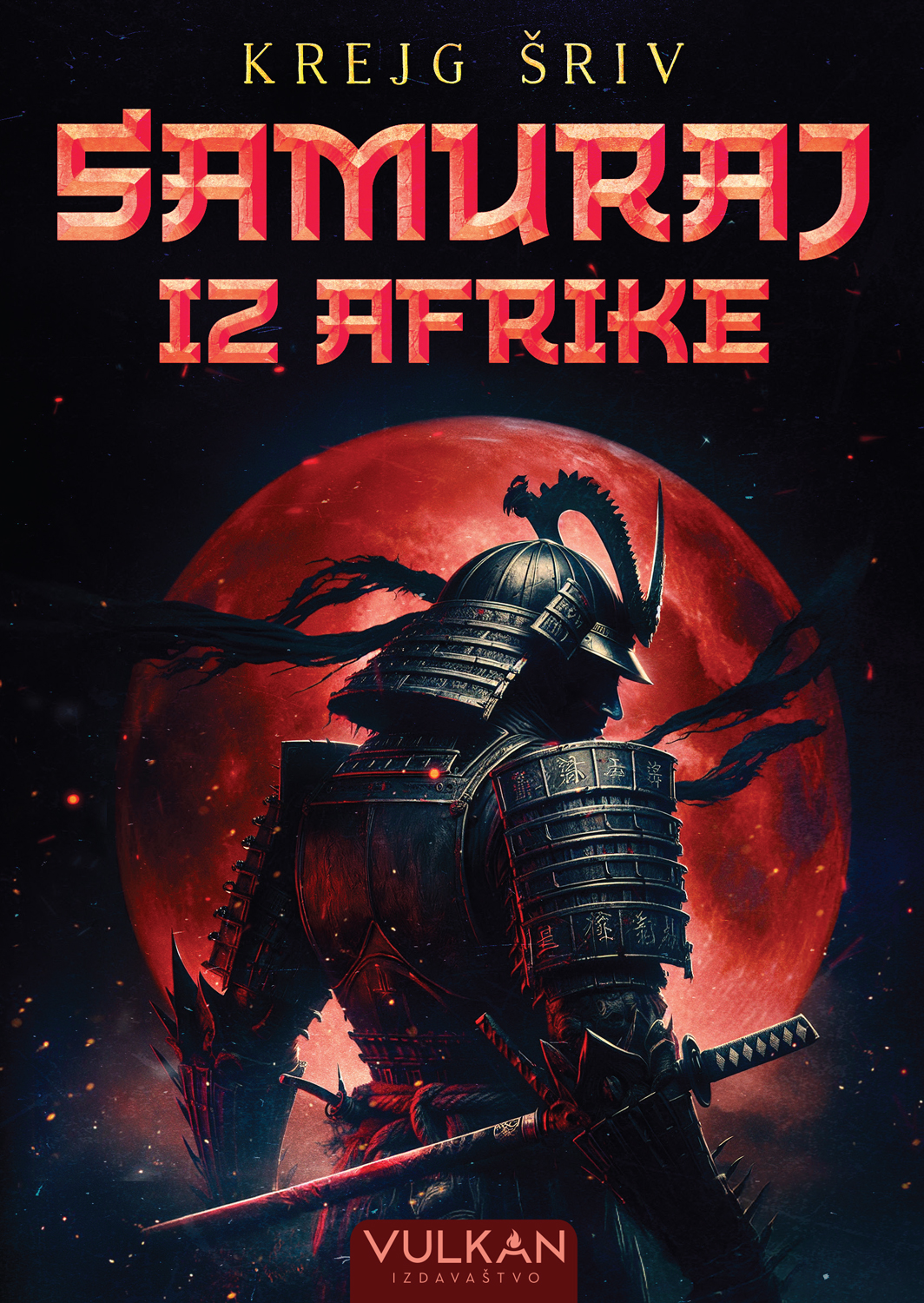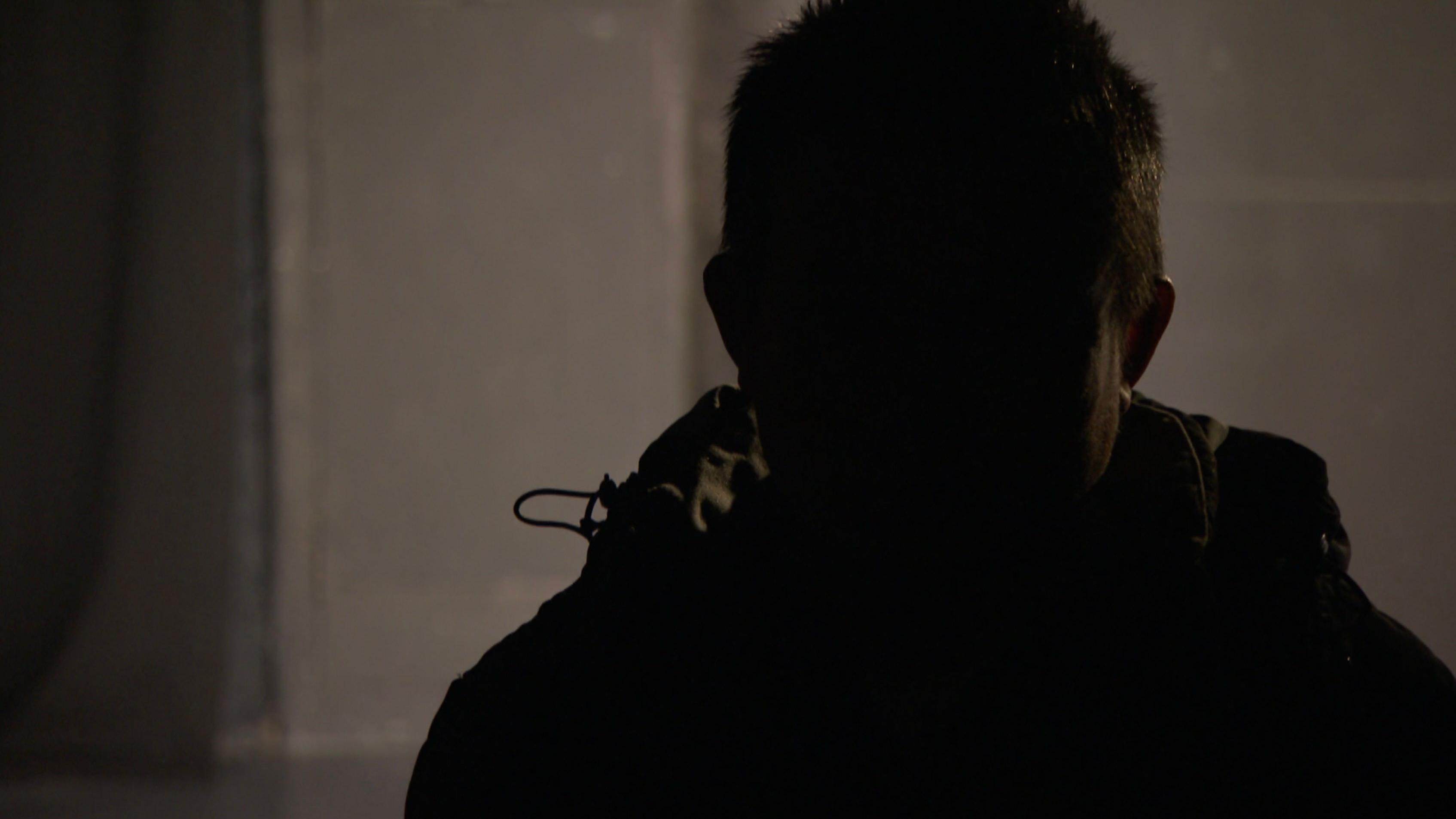Craig Sushv: Sometimes people in power do not have real power – culture

Kraig Sushi, a Canadian author who lives in Toronto, in its creation he skillfully explores the topics of racial history and identity, relied on the heritage of African American and African past.
After notable debut « One Night in Mississippi », returned with the novel « Samurai from Africa », which published publishing inspired by fascinating, but almost unknown to Jasuke – an African black warrior who became a samurai in the 16th century. The Semiv skillfully intertwine history and fiction, considering the issue of belonging through the prism of culture, personal struggle and freedom.
When you hear the term « African Samurai » sounds like a name for the new Tarantin movie. How did you first find out about Jasuke and what inspired you to translate his story into a novel?
– For Jasuke I heard the first time when I came across a short video about him. I was stunned that I’ve never heard of that story before and I immediately wanted to find out as much as I can. The more I learned, the more fascinated I was. I realized that, even though there were excellent documentary sources, there was missing anything from Jasuke’s corner itself. We have no letters or diaries. We have good information about where he was and what he was doing, but nothing about what he thought and how he felt – and that’s why I wanted to write this book. To try to put myself in his skin and realize what the experience was for him.
How challential was to write a novel that respects historical facts, while retaining literary freedom and emotional depth? Did you feel moral responsibility, knowing that you write about one of the few recorded African characters in Japanese history?
– I certainly felt responsibility to respect culture and history, but also all the characters in the story. These people died a long time ago, but they were real people and deserve to treat them with respect. This does not mean that they should be shown in the best possible light – it was a violent age and people did terrible things – but it means that every character should be treated just and stick to the familiar facts. There were moments when I wanted to take the story in a different direction, but I had to remind you that the story must be shaped according to history, not history for the story.
How familiar were you with Japan before you embarked on writing about the first samurant, which was not born in Japan?
– I was somewhat familiar with Japanese history, but I realized how much I don’t know at the beginning of the research. I live in Canada, where history reaches a few hundred years backwards, so it is a bit frightening to immerse in thousands of years of Japanese history. In addition, since Japan is an island country, which has long been isolated, its history is very coherent. It was not as influenced by external factors as other empires. That is why I had to dive in the whole history, because things from the XI and the 13th century have directly reflected the events in the 16th century.
And this novel, as well as your previously debut work, deals with identity issues and belonging. How much do you think that topic is universal and now more relevant than ever?
– The pursuit of belonging is probably the most diverse theme I can imagine. Identity issues are basically the same, only in a broader context. It’s a search for a place in the world. Today we have the freedom to explore the identity, but in other epochs and places it was a luxury. I like to explore the identity in different environments. Even today, we adapt – hiding parts of yourself to fit at work or school – but in some historical moments, the change of identity was a question of survival. How much do you have to give up? How much risk are you willing to download to be what you are? The answers to these questions depend on the middle – that’s why I’m new and fresh to investigate them in different circumstances every time.
How much did you personally access the topics of power, identity and prejudice while writing this novel? Did something particularly surprise you in the writing process?
– One of the ideas that was especially interested in is the difference between power and authority. Sometimes people in power don’t have the real power (as a car at the time), and sometimes those without position have a huge impact (like Jesuit, who were at first without formal power, but were very influential. The identity was a rich topic because it does not only apply to Jasuke – other characters in the story fight with him. The biggest surprise for me was when I wrote a conversation scene between Jasuke and Tokugava about freedom. Tokugava was raised as a hostage, and I had to think about the difference between that and the slave business – as well as the notice of freedom in a feudal society. There are levels of freedom: nobles have great freedom, hostages live like nobles, but they know that life depends on their political agreement; Ordinary people have daily freedom, but not the future; The slaves depend on the will of the Lord. Jasuke does not acquire freedom, but gradually climbs through these levels. This story made me think deeper than other others.
In one interview you said that in the 16th century, when the contacts between Japanese and Africans were almost non-existent, there were no negative stereotypes related to skin color?
– The Japanese knew as little about the Africans that they didn’t even have stereotypes through which Jasukea would be assessed. For many, he was the first and only such experience. That’s why I was hard for me to imagine that situation in the early scenes. It was the right first contact, and I don’t have personal experiences that I could apply. The scene in which the Nobunaga orders that Jasuke is funded and exurrected, it is recorded, but I don’t think the Nobunaga would consider it offensive. He was curious, especially for the world outside Japan, and I used to use this curiosity as a basis for their relationship.
In the company that was almost completely homogeneous at the time, Jasuke became a samurai. Who would be his contemporary counterpart today?
– Great question. I was thinking for a long time and then remembered the recent choice of the new Pope. It is one of the most human institutions that still exists. Women even cannot become a cardinal – therefore, neither to be considered for the Pope. Although we have reached far in terms of diversity and equality, how would the world react to the African Pope?
I would like to think the best about people, but I believe there would be many negative reactions, and it shows how much we still await us to accept each other as equal. I remember the interview with Rut Ginsburg, a fighter for women’s rights and the judge of the US Supreme Court. When they asked her how many women would want in the nine court, she said, « Nine. » The journalist laughed, and she replied, « Why does nine women work funny, and nine men don’t? » I’m paraphrasing, but that sentence hit me deeply and helped me understand the difference between equality and inclusion. Sometimes inclusion means: « You are welcome, but not at the same level. » It is crucial for understanding how Jasuke can be accepted, but still remain an outsider in a homogeneous society as Japan was in the 16th century.
If you lived in Japan the 16th century and had to choose – would you be a Samurai, Ronin or Shinobi?
– Samurai enjoyed the higher social status than the others. Ronine BiH first turned off – the idea that you have been romantic with its own, but life was difficult. Shinobia have that mystical aura, almost superhuman, which is attractive, but I would still choose to be a samurai. They belong to the clan, family, in the way diving and shinobia do not belong to. Also, samurai are often encouraged to engage in art. True, they had to deal with politics, but I think they had the best position in the total sum.
If you met Jasuke today, what do you think would tell you, what would you tell him?
– First, I’d stay out of words. Then I would ask him to write down everything he could remember, as long as possible. I would ask him to teach me at least one thing that was lost from history. I would tell him that he was remembered and appreciated for centuries. I don’t know what he would say to me, but I hope I wink and said, « You hit most. »
Follow us on our Facebook and Instagram page, but also on X account. Subscribe to PDF List release today.








